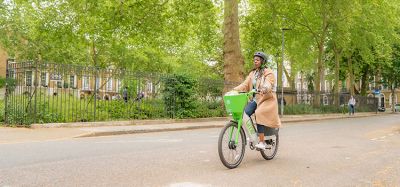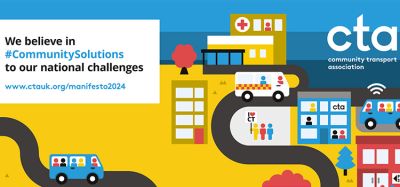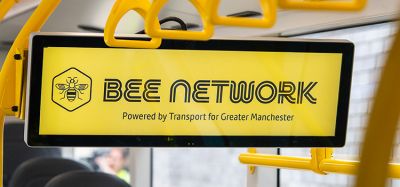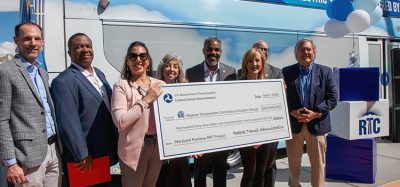Modeshift – the sustainable travel network
- Like
- Digg
- Del
- Tumblr
- VKontakte
- Buffer
- Love This
- Odnoklassniki
- Meneame
- Blogger
- Amazon
- Yahoo Mail
- Gmail
- AOL
- Newsvine
- HackerNews
- Evernote
- MySpace
- Mail.ru
- Viadeo
- Line
- Comments
- Yummly
- SMS
- Viber
- Telegram
- Subscribe
- Skype
- Facebook Messenger
- Kakao
- LiveJournal
- Yammer
- Edgar
- Fintel
- Mix
- Instapaper
- Copy Link
Posted: 20 June 2016 | Ross Butcher – Chair of Modeshift | No comments yet
If you got a chance to read his ‘online-author-preview’ in April 2016 , Ross Butcher – Chair of Modeshift – introduced the organisation and the work they are doing to improve sustainable travel delivery in the UK. He also covered the importance of sustainable travel and challenged readers to think about a journey they have taken as a passenger or driver of a car that could have been replaced by a more sustainable travel mode. Here, Ross takes us on a journey through childhood, lifestyle changes and how Modeshift wants things to be made easy…
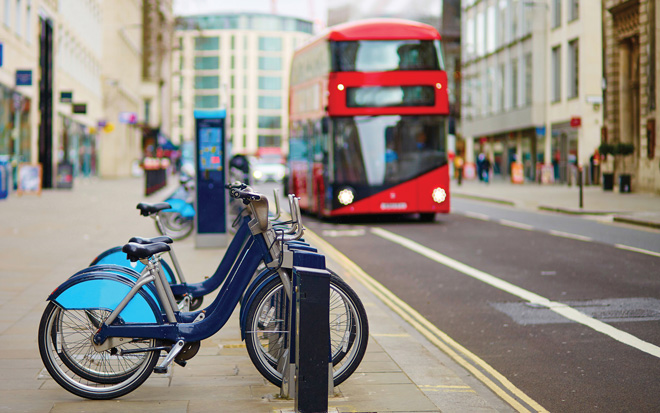

Getting back to basics, Modeshift is a national network of sustainable travel practitioners based in the UK. We have over 600 members from local authorities, the profit and not-for-profit sector. Established in 2001, we are a best practice sharing organisation. With expertise and experience in sustainable travel up and down the country (as well as internationally), Modeshift exists to highlight what works well and in supporting the industry to increase levels of sustainable travel. We do this to enhance economic growth, improve the health of our population, reduce congestion and improve air quality. Today there are few who doubt the value of sustainable travel and its far reaching benefits, but we acknowledge that more needs to be done.
With the aim of taking a journey back to your childhood, I present the following questions: Did you walk to primary school? Can you ride a bike and, if so, at what age did you learn to ride and who taught you? Did you ride the bus to secondary school? Did your family have a car? If so, how many? And, for fun, what was your favourite TV programme? These are great questions to bring up in discussion with someone. You might say how different things are today or perhaps continue the conversation on childhood TV programmes. My point here is that the impact of the education, life skills, knowledge and experiences we encounter as children has a long lasting impact when we reach adulthood. Focusing on the journey to and from school is where Modeshift began.
For the last 15 years Modeshift has worked alongside its members and partners in England to support and enhance the field of sustainable travel with a focus on the journey to school. Our core programme is the Modeshift STARS National School Travel Awards (In London, Transport for London (TfL) runs an equivalent scheme called STARS). Both the TfL and Modeshift STARS programmes are free to all schools and help to implement key actions that have shown to increase levels of sustainable travel. Schools that take part can be recognised at either a bronze, silver or gold level. We offer these programmes to schools as it’s important to embed sustainable travel messages as part of a child’s education and development.
A child that travels by active modes (walking or cycling), uses public transport (and knows how to use it) and is aware of the impact of all modes of transport on several aspects of life (i.e. the environment, cost of living and time) is more likely to travel by sustainable modes in the future. Modeshift wants all children to have this opportunity. Support for schools from local authorities, other organisations and national government is crucial; but not all children are reached by this important stage in their development. Modeshift continues to expand its national awards scheme to schools outside of London. We have over 2,000 schools engaged3 and there are many more we want to reach through our scheme. STARS has also gone international and very soon countries and cities in the EU can take part. If you have young children of your own, work in or support a school in anyway, I hope you’ll hear about these great initiatives soon.
My second topic is lifestyle change. At the beginning of March 2016 I made a big lifestyle change – I moved house. I left the inner-London borough of Hammersmith and Fulham to a district in the town of Hemel Hempstead in Hertfordshire. Hemel is known as a ‘New Town’ – one of many that developed in the 1950s after the Second World War. Our most notable feature is the ‘Magic Roundabout’ and if this is news to you please Google it. What this change in my lifestyle means to me is an opportunity to change how I travel. This may not apply to everyone, but everyday people are making new journeys and not always by the mode that could help them either get more exercise or save a little extra money every week.
In recent years Modeshift has recognised the need to expand our focus on journeys outside of the educational spectrum. Our best-practice sharing now covers journeys for business and leisure purposes. In 2015 we launched a new national initiative called STARSfor. Our STARSfor scheme is all about supporting places of work and new developments to adopt sustainable travel actions for their staff, visitors and, in places, residents. Later in 2016 STARSfor will be re-launched as a national accreditation scheme. In partnership with local authorities countrywide, we will be supporting organisations to increase levels of sustainable travel and become recognised for what they do. Through STARSfor we plan to reach people who make regular journeys and also those who experience lifestyles changes and are about to make a new journey.
This leads me to my third area of consideration – making things easy. Today we have more ‘messages’ thrown at us than at any other point in history. The days of long emails and videos to communicate a message are coming to an end. We want things done for us and communications to be short to support the back-log of other things we need to do. Modeshift is certainly getting more into this area as time goes on. We have a Twitter account4 and an Instagram account (which I need to get my head around) and our services to members are all online. Our STARS system for schools and STARSfor system for businesses is all about enhancing engagement, making their job easier and saving time.
We will need to do more with making things easier as technology is moving at a ridiculous pace. Think about the smartphone and the fact that you can plan nearly any journey you want using it. The journey planning app I use tells you the quickest route, the time it will take, distance and calories burned (and I’m sure this is fairly basic in terms of apps). Smartphones are a great example of how we want things fast, easy and accessible. Modeshift certainly has no plans to launch a new phone, but we do want to highlight and support ideas and products that make sustainable travel easier. Technological development is going to play a key part in how we continue to travel. With a greater introduction of cleaner automobiles, faster trains and electric bikes to our industry we will see some issues decline – although technology needs to be treated carefully and we cannot become over reliant on it for our everyday use. Watch the film Wall-e (if you have not seen it already) and you’ll see where I am coming from.
That’s the end of this short journey through childhood, lifestyle changes and making things easy. They are all interlinked in certain ways but only three elements of many that go hand-in -hand to support sustainable travel. Modeshift covers a wider remit than I have been able to share here so feel free to visit our website2 for more information. I would like to mention that Modeshift is managed by a board of 13 volunteers and two full-time paid staff. I work full-time (like the other 12 members of the board) for Transport for London and we all give our own personal time to Modeshift and its important cause.
References
- eurotransportmagazine.com/news/transport-extra
- modeshift.org.uk
- As of May 2016
- @modeshift1
Biography
Ross Butcher joined Transport for London (TfL) in 2006 as a graduate in Transport Planning and since 2008 has specialised in sustainable travel planning and behaviour change. He currently manages TfL’s secondary school and higher education programmes. Ross joined Modeshift in 2008 as the London regional representative, taking on the role as Vice-Chair in 2009 before taking over as Chair for Modeshift in 2011. Prior to working in transport Ross served as a Director at a number of summer camps in the USA.
Related topics
Fleet Management & Maintenance, Sustainable Urban Transport
Issue
Issue 3 2016
Related cities
United Kingdom




